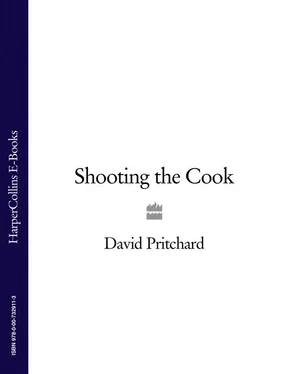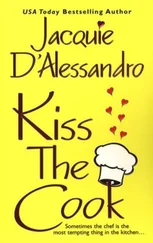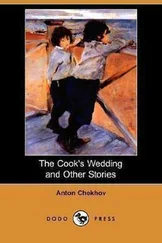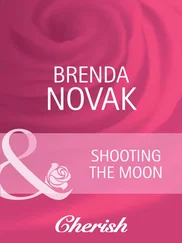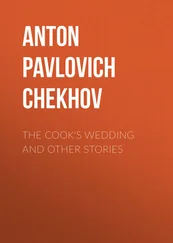I would take a mobile phone the size of a jerrycan (well it was 1984), just in case something really important came up, a bottle of cider and a Cornish pasty as a precaution in case lunch proved reluctant to take the bait. I’d fish for bass, but only ever caught mackerel. Many people regard mackerel as the second-hand Ford Fiesta of the fish world, but they are delicious straight out of the sea, dusted in seasoned flour and fried in butter, with just a smidgen of mustard and a splash of lemon juice—but I digress. As I usually do at the mention of food.
I used to tell my assistant that I was off on a research trip to meet up with a Mr Bass down in Cornwall. Sometimes the phone would ring and on rare occasions it would be John Shearer in Bristol. He was one of my bosses, and although he looked the spitting image of John Denver, many of my fellow producers in the BBC rather unfairly I think, called him Vlad, after the famous Transylvanian prince with a penchant for sticking large nails through the heads of anyone who caused him displeasure—but only when Mr Shearer was well out of earshot. I liked him, because he was so unswerving in his thoughts and didn’t give a fig about tact and diplomacy. He made no secret of the fact that he thought the BBC was stuffed full of somewhat tired (and very often emotional) lacklustre staff who spent far too much time in the BBC Club.
For obvious reasons, his was the last voice I wanted to hear on a bright morning a mile off the Cornish coast, with the sun beating down and the waves gently lapping against the hull. I’d put on my serious voice, and speak quickly so he wouldn’t be able to hear the seagulls mewing overhead, but on one occasion he became suspicious and asked me where I was. I thought of saying I was in a meeting, but I ’d just pulled in six mackerel and they were wriggling and flapping at the bottom of the boat making a terrible din.
‘Well John, since you asked, I’m actually at sea at the moment researching a possible series on fishing in the south-west. It’s a very important industry down here, you know, and it’s been largely ignored.’
Amazingly he told me he thought this was most commendable and wished other producers would get off their arses and get out there to find out what was really going on.
It was after one of these delightful fishing trips that I returned to the studio in Plymouth and was making my way to my office when I heard the strains of the Stranglers’ classic song, ‘Peaches’. The studio, with its imposing veranda, lawns, and rosebushes, reminded me of one of those convalescence homes you saw in black and white films about recuperating fighter pilots and torpedoed seamen that were so popular in the Fifties. I could easily imagine nurses in starched white summer uniforms wheeling the staff about in the lovely gardens and bringing them cups of tea. Appearances can often be misleading though, because in these sedate surroundings the likes of Angela Rippon, Sue Lawley, and Jill Dando started their illustrious broadcasting careers. Like any television station, no matter how small, it was full of talented people keen to progress in the industry, tempered with a sprinkling of those whose love affair with television had finished a long time ago and who were now longing for a caravan in Brittany. I wasn’t quite sure where in this scenario I fitted in.
The sound of the Stranglers was coming from the technical area where they recorded and transferred programmes onto videotape. I had chosen this brilliant song to end a brand new series that I’d made, but was as yet unseen, called Floyd on Fish . I saw this as an antidote to all those rather starchy and clinical studio-based shows in which all the ingredients were measured out in teaspoons or carefully weighed, and they always had a finished dish they’d made earlier.
I’d never had so much fun making a television programme before and after long sunny days of filming, my ribs used to ache from laughing so much.
On one of the many screens in the room I could see that the end credits were running. They were superimposed over a shot of Keith Floyd, with a very young-looking Rick Stein, sitting down with full silver service on white linen, laid out on the deck of a trawler. It had all seemed like such a brilliant idea and I felt extremely pleased with myself as I entered the room. I didn’t have a clue how all this technical stuff worked but I thought it would be quite interesting to see what my very first programme for BBC South West looked like on a real telly, rather than an editing machine.
‘What a load of crap!’ was the first utterance I heard coming from an open talkback (this is a microphone and speaker system, which lets people in the recording studio communicate with people in the control room).
Greg, the video operator, went to switch it off but as I was nearer to the speaker I stopped him.
‘This is probably the worst programme ever to come out of Plymouth,’ said another voice.
‘That bloke’s pissed out of his head. It’s insulting.’
‘It’s a disgrace. It shouldn’t be allowed,’ said another.
Well I think there were a few more comments, but by then I felt as if my shiny brand new Spitfire was crashing down to earth with all my ammo used up and black smoke streaming from the engine cowling.
I could recognize nearly all of the voices. They belonged mostly to engineering staff, whom I’d see often in the BBC bar after work. Greg looked very embarrassed and kept finding interesting things to look at through the window. I put on one of my best smiles, the sort that says, ‘Hey, am I worried? I really do appreciate these thoughts. You’ve been most honest and I’ll bear your criticisms in mind…When I come round to your house and set fire to it.’
I was smiling so much my face hurt but on the inside I was unsettled and a trifle scared. Maybe I had been too cavalier, too much under the spell of the mercurial Mr Floyd? All this time I’d been happily filming away at wonderful locations in the south-west without a care in the world. We’d eaten well, drunk rather too much, and probably in the process I’d created a false sense of euphoria. Now, I wondered to myself, if it really is as bad as they say, how could I possibly get something so wrong? I’d probably have to resign and become a freelance, or, worse, be faced with the sack. My mother would be horrified, not to mention my wife and daughter and the Bradford and Bingley. And this would mean no more expensive, over the top food shopping. Bye, bye Scottish sirloin and Gevrey Chambertin—not that I saw very much of you. Adieu roast goose washed down with a serious bottle of Pauillac—well that was only for birthdays really. Cheerio to all the lovely things I love so much, especially lobster, turbot and Iberico ham—although you were strictly for high days and holidays. I would be entering a bleak world where no doubt I’d have to beg a commissioning editor half my age to grant me the opportunity to make a film about the state of rural transport in north Devon.
The last time something like this had happened to me was in 1978, when I’d made a new series for the BBC in Bristol. It was called RPM and it was about pop music, architecture, real ale, and lots of other stuff—basically things that I and my small production team found interesting. It was new, it was vibrant—or so I thought—and it was due to run for thirteen weeks. I had high hopes for it.
A day or so after the first transmission they started to appear. ‘They’ were pinned on the notice board outside the canteen, up and down the corridors, outside the studios, everywhere. ‘They’ were cuttings from the Bath Chronicle and they carried a searing review of my very first programme. The headline in the television section screeched something like, ‘Is this the worst television programme ever made by BBC Bristol?’ Clearly someone who didn’t care for the programme, or more likely, me, had been busy scampering around the studios with a roll of Sellotape.
Читать дальше
